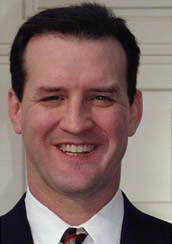Gerard Gianoli, MD, of Baton Rouge, LA, an ENToday board member, said that Mirror Mirror is largely based on myths, and that if one compares costs of a procedure by country there’s not a lot of difference. As for access to health care, he considers the United States superior: Everyone in the US who needs a cochlear implant gets one. Even if you’re uninsured, Medicaid or someone else will get it done. Recently a Canadian colleague told Dr. Gianoli that cochlear implants are limited there, that his 2008 surgery schedule is filled, and that Canadians who don’t want to wait cross the border for surgery Summing up, Dr. Gianoli compared socialized medicine to oil change insurance-when dollars go to routine procedures, there’s little left for big-ticket items.
Explore This Issue
September 2007CLS, a blogger on http://freestudents.blogspot.com , a classically liberal blog, attacked the erroneous assumptions about the American health care system’s costs with gusto: Americans spend more per capita on automobiles than do Nigerians. Is there an American car crisis? Americans spend more per capita than many nations because we have a higher standard of living. CLS pointed out that the same Americans who are considered well-off when buying cars, chocolate, or cosmetics are considered worse off by advocates of socialized medicine. The assumption in much of the world is that American health care is significantly inferior because Americans spend more per person than do people in other wealthy nations. CLS wrote: Today people want the best care money can buy. For example, in the US about 25 million MRI scans are performed per year, up from 1.8 million in 1990. This cost didn’t exist in the ’80s because the technology didn’t exist. Abolishing technologies such as MRIs would lower health care costs significantly, but people would suffer, there would be more deaths, but it would be cheaper. CLS’s clincher: Is America overspending on health care? No doubt. But it is likely that state systems are underspending. The extra money that Americans spend is one reason there aren’t queues for needed surgery.
Consultant JoAnn Laing of Ridgefield, NJ, cited the late US Senator Daniel Patrick Moynihan’s quip: Everyone is entitled to their opinion, but not their own facts. She finds the Commonwealth Fund’s survey self-serving, questioning its methodology and structure. Of our system, Ms. Laing said: Most nations look to the US for medical advances and the technology and treatments we develop. Why else do the wealthy from other countries come to the US for medical treatment? We’re not perfect, but we have a concern for patients and their needs. In other first-world countries patients wait in pain for months for procedures. In a nation that devotes 16% of its GNP to health care, I believe we do a good to excellent job.

Leave a Reply